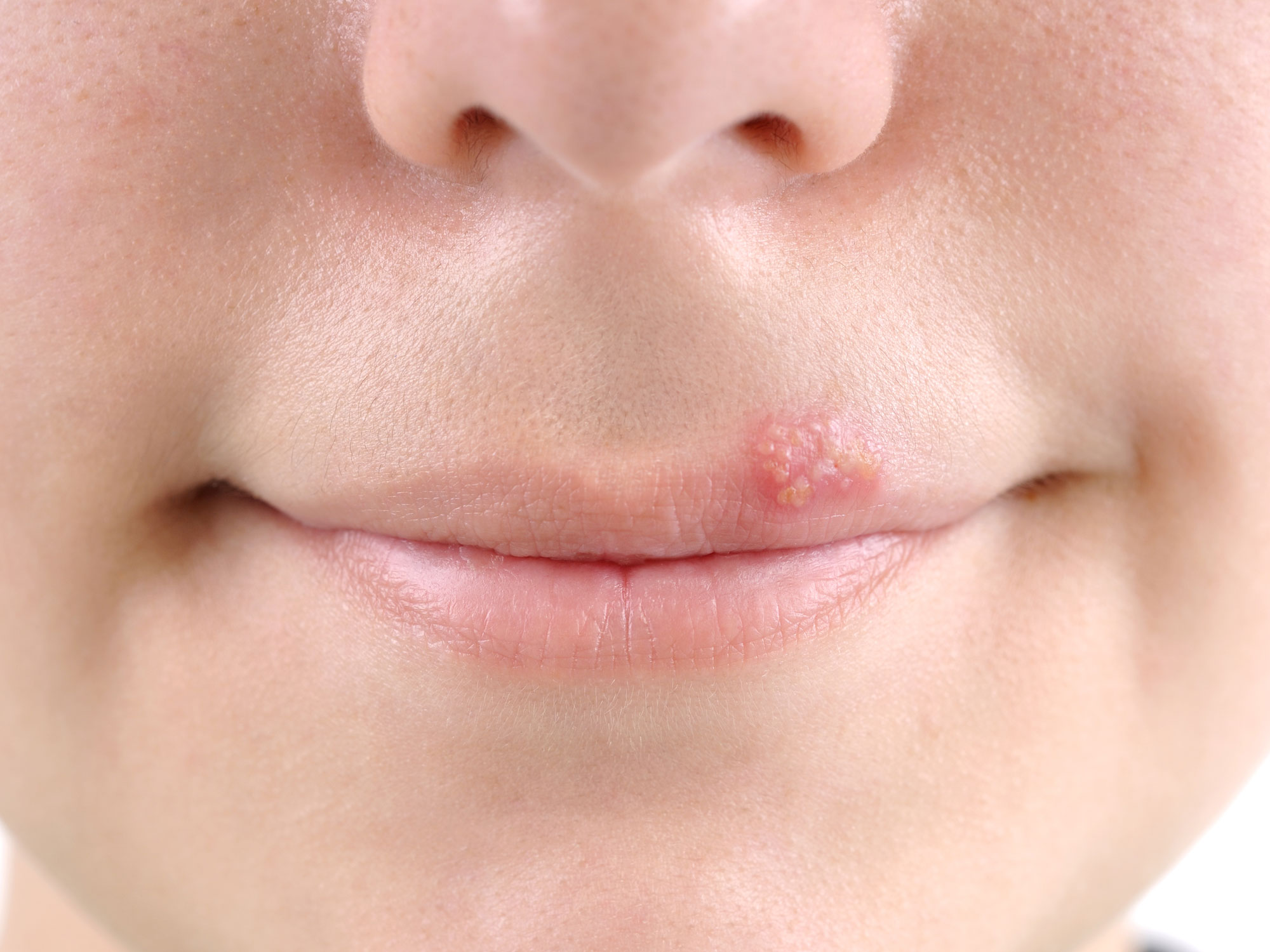Get Easy Health Digest™ in your inbox and don’t miss a thing when you subscribe today. Plus, get the free bonus report, Mother Nature’s Tips, Tricks and Remedies for Cholesterol, Blood Pressure & Blood Sugar as my way of saying welcome to the community!
6 natural cures for the common cold sore

Many of us are horribly embarrassed when we develop a cold sore, and not just because of how we look.
Cold sores are caused by the HSV-1 virus, better known as Herpes simplex type 1, and just the word “herpes” carries all kinds of embarrassing connotations.
So, before we talk about natural cures, I’d like to put an end to that stigma.
First, according to the National Institutes of Health, at least 90 percent of us have been exposed to Herpes simplex in our lifetime.
Many of us received the virus in childhood, through sharing toys, drinks and snacks, and have carried it in a dormant state ever since.
Any time our immune system is under attack, due to illness, stress, or lack of sleep, the virus may be activated, and that ugly cold sore appears. Statistics tell us that this will happen to 90 percent of us at least once, and that 40 percent of us will have recurring episodes.
So, you see, cold sores are really as common as, well, the common cold.
6 ways to zap that cold sore
Now that we’ve put that to rest, here are some natural and readily available ways you can treat and prevent the common cold sore.
1. Lysine
Lysine is an essential amino acid, meaning the body does not produce it, and we must obtain it from our diet. Foods rich in lysine include legumes, fish, turkey, chicken, and many vegetables.
Studies have shown that lysine can reduce the severity and duration of cold sores. You can take it in supplement form, or apply it directly to the sore as a cream. Alternately, soaking a cotton ball in milk and applying it will give you a dose of lysine.
2. Licorice root
A traditional treatment for mouth sores, licorice root contains glycyrrhizin, an anti-inflammatory that can ease swelling.
In lab experiments, the flavonoids in licorice root have been shown to counteract the growth of the herpes simplex virus.
A thin layer of extract, gel or crème can be applied to the sore. Start with a small amount, to be sure there’s no skin irritation.
3. Peppermint oil
In a 2013 study published in the journal Phytomedicine, the antiviral properties of peppermint oil were about 99 percent effective against both the HSV-1 and HSV-2 viruses, when used as soon as symptoms appeared.
4. Vanilla oil or extract
At the first sign of an oncoming cold sore (tingling or burning), apply vanilla oil or extract several times a day, and continue until the sore is gone. It will speed recovery, and soothe inflammation and pain.
5. Lemon balm
Lemon balm is an herb in the mint family. Topical creams are available in your health food store.
Several studies have shown that topical lemon balm treatments reduce the severity of cold sores.
One study saw relief of swelling and redness within two days when lemon balm ointment was applied. In another, several German hospitals found no recurrences of oral herpes that was initially treated with lemon balm ointment.
6. Manuka honey
Manuka honey is produced in New Zealand by bees that pollinate the native manuka bush. This type of honey contains large quantities of methylglyoxal, an antibacterial substance that most honey has only in small amounts.
Applying manuka honey directly to a cold sore will soothe and protect it, as well as speed up healing.
Other tips to prevent and treat cold sores
Use sunscreen. Sun exposure can trigger an outbreak of cold sores. Use an SPF lip balm any time you are outdoors, especially in spring and summer.
Avoid l-arginine. The amino acid l-arginine can lower levels of lysine. So, if you are prone to cold sores or experiencing frequent outbreaks, adjusting your diet to decrease foods high in l-arginine could help.
Those foods include nuts and nut butters, lentils, soybeans, chocolate, and spinach. You don’t have to rid your diet of these healthy foods entirely; rather, see if an adjustment makes a difference.
Keeping your hands off open sores and changing your toothbrush can also keep cold sores from spreading.
Editor’s note: While you’re doing all the right things to protect your brain as you age, make sure you don’t make the mistake 38 million Americans do every day — by taking a drug that robs them of an essential brain nutrient! Click here to discover the truth about the Cholesterol Super-Brain!
Sources:
- Virucidal effect of peppermint oil on the enveloped viruses herpes simplex virus type 1 and type 2 in vitro — Phytomedicine
- Success of L-lysine therapy in frequently recurrent herpes simplex infection. Treatment and prophylaxis — Dermatologica
- Licorice Root & Herpes — Livestrong.com
- Cold Sore Home Remedies- The Ultimate Guide — HolisticHealthHerbalist.com













